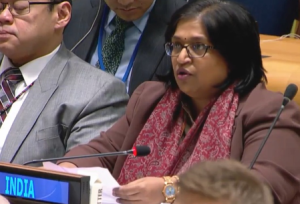Reparations are compensation for past wrongs. Keir Starmer faces difficulty discussing the topic.
Reparations have long been a contentious issue in global politics.

Keir Starmer attended a welcome reception for the Commonwealth Heads of Government Meeting in Samoa, where the topic of reparations, also known as reparatory justice, was a major talking point. This has been a contentious issue in international relations for many years, and it refers to the payment of money or other forms of assistance from one party to another to make up for damages they have caused. In a broader sense, it often pertains to the expenses incurred by the losing side in a war or by those involved in the slave trade.
Currently, the issue of slavery reparations is making headlines in the UK as several Commonwealth leaders have vowed to raise it at the summit in Samoa. However, Sir Keir Starmer, leader of the opposition, has ruled out any form of compensation for countries affected by Britain's past involvement in the slave trade. His official spokesperson also stated that he would not be issuing an apology for it. This decision has been met with criticism, as five Labour MPs have called for Britain to take a leading role in discussing this issue at the meeting.
But what exactly are slavery reparations? These are payments made by organizations or countries to individuals who have been directly impacted, or their descendants, by the buying and selling of human beings. For instance, Georgetown University in the US has established a fund that allocates $400,000 annually to projects benefiting the descendants of enslaved individuals on plantations in Maryland. Similarly, the Jesuit order of Catholic priests has announced a plan to raise $100 million for the descendants of people they once owned.
However, when we look at the bigger picture and consider entire countries, the issue of reparations takes on a much larger scale and price tag. Britain, along with other European nations, played a prominent role in the transatlantic slave trade for centuries, starting in the 1500s. It was ultimately through the efforts of British parliamentarians and campaigners that the trade was abolished in the 19th century. However, the damage had already been done, with millions of Africans being forcibly taken from their homes and forced into labor in the Caribbean and Americas. Now, countries in Africa and the Caribbean are among those calling for compensation for the long-term effects that still linger 190 years after the Slavery Abolition Act.
A report published last year, co-authored by UN judge Patrick Robinson, estimated that the UK alone would owe nearly £19 trillion to 14 countries as reparations. This staggering amount highlights the gravity of the issue and the urgency for it to be addressed.
The topic of reparations has also been a point of discussion among UK politicians. Clapham and Brixton Hill MP, Bell Ribeiro-Addy, has been particularly vocal about it, along with Nadia Whittome, Clive Lewis, Dawn Butler, and Marsha de Cordova. In the lead-up to the Commonwealth Heads of Government Meeting, they all called for reparations to be on the agenda. In an interview on the Today program, Ribeiro-Addy expressed her disappointment in the government's attempt to dictate the terms of the conversation around reparations, calling it "extremely disrespectful." She also noted that the UK's veto power on this issue still reeks of colonialism and that people are seeking some sort of resolution to it.
Last year, former Prime Minister Rishi Sunak rejected a similar call for reparations, stating that "trying to unpick our history is not the right way forward." However, with the issue gaining more attention and support, it remains to be seen how it will be addressed by the government and the international community moving forward.










